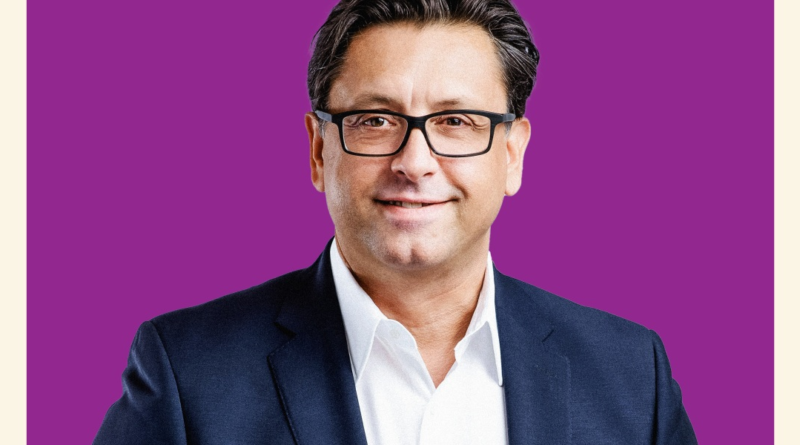Gen Z needs brand new skills to climb to the C-Suite, says healthcare CEO
Fortune Connect is a new learning community for the next generation of purpose-driven leaders. We provide you with the tools and allies you need to accelerate your career, enter the C-suite, and have a positive impact on business. Join live events with Fortune 500 leaders and build your network.
Paul Hudson, CEO of French pharma and health care giant Sanofi, has spent his career leading pharmaceutical industry titans. But don’t follow in his footsteps; he says the next generation will have to learn an entire new rulebook, because their skills don’t meet current companies’ needs.
“I got here, to this job, by doing all of the traditional roles,” Hudson told Fortune’s Peter Vanham during an interview on Fortune Connect, Fortune’s executive leadership community. “Run Japan. Run North America. Learn about drug development. Be in business development and mergers and acquisitions.”
Before taking the lead role at Sanofi nearly four years ago, Hudson was CEO of another pharma giant, Novartis, after spending 10 years running AstraZeneca’s North America business.
Each of these experiences was “very interesting,” Hudson acknowledged; all those years in the C-suite taught him a great deal about people, management, and profits. But they also taught him that hopeful executives-to-be will have little use for the learnings critical to his own rise, and that the prerequisites for the person who will one day succeed him at Sanofi—or any major company—will be different.
Indeed, the next generation must hone “a very different set of skills” than current executives needed to. “What got me here will not get them there,” Hudson said. Namely, young workers “need to have a big data experience in their skill set.”
That’s because by the time they’re cresting the C-suite, having a firm grasp on generative A.I. and similar Big Tech implementations—whatever those will look like 30 years in the future—will be a “minimum expectation,” he said.
That doesn’t necessarily mean business leaders will also need to be coders. Rather, they’ll need to understand the importance of data, the opportunity it presents to their company, what it can provide for them and their people, and how it can help C-suite execs themselves create what Hudson called “an exponentially bigger impact.”
A.I. skills won’t just be nice-to-haves for long
Hudson is far from the only public company CEO to expound upon the virtues of A.I. adoption; it explains why full understanding of its capabilities is becoming non-negotiable.
In a Connect executive session just last week, Andy Bird, CEO of education giant Pearson Education, said most workers have no choice but to add A.I. fluency to their repertoire.
“In many ways, technology and A.I. are moving faster than real life,” Bird said. “We’re struggling to catch up, and the impact that that has on us both as individuals and as companies is the need to continually re-skill and upskill.”
That’s no exaggeration. The skills gap has grown so much that it’s left nearly half (44%) of workers in a tough position: Upskill to meet your job’s demands, or find work elsewhere. Unfortunately, Gen Z’s comparable familiarity with tech isn’t much use when it comes to new A.I. Nearly two in five (37%) of Gen Zers feel their technological education underprepared them for their careers, per a recent Dell Technologies survey; over half believe they have very basic to no digital skills education.
But in most cases, upskilling to meet digital demands isn’t as daunting as it sounds—and most companies would rather boost worker capabilities than replace them with robots. “For example, if you’re an accountant, you already possess 25% of the skills you need to become a data scientist,” said Bird, the Pearson CEO. “So we only need to re-skill a bit; you have some of the basic core competences to take you from job A to job B.”
If the biggest hurdle is assessing where A.I. fits throughout the organization and implementing it, Sanofi is already there. It’s one of the few companies where on any given day, 9,000 people are using A.I., Hudson said: “That’s 10% of the company.” He believes that at scale, A.I. will create exponential value for Sanofi as well as the patients it serves. Anyone who disagrees is missing the boat.
“There are going to be companies that [don’t adopt A.I., and] really try to hold everybody back,” Hudson said. “I think they won’t be able to compete.”



